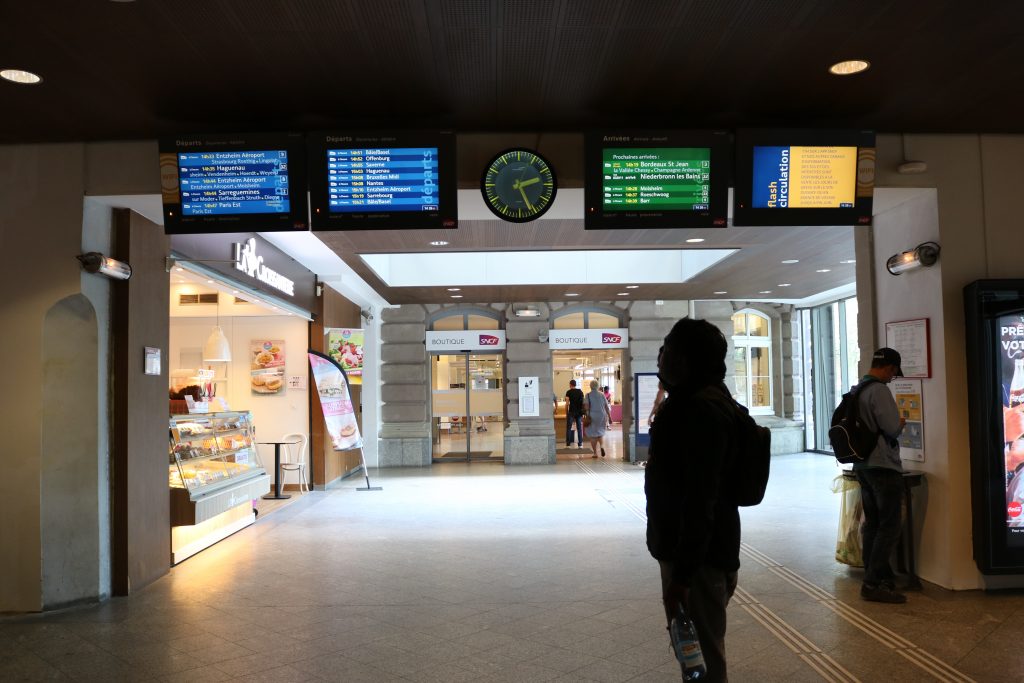To Eurail or not to Eurail
I looked on as some of my peers traveled on the train every weekend and for every occasion…. But before you buy your Eurail pass, consider the following:
Cost comparing:
Eurail pass is not a one-and-done affair. If you’re traveling on select high-speed trains or would like to reserve a couchette, you will still have to shell out between 7-33€. If you must pay extra for a reservation, it may be worth looking into Ryanair, Easy Jet, and other budget retailers for flight costs. The round-trip flight may be less expensive than the couchette (and will last a fraction of the time).
If you have a limited-use Eurail, you should do the math to decide if pass should be used for your trip. To do this, compare the cost of the actual ticket online to the price per 24-hour period on the Eurail: you can find this by dividing your total cost by the number of days. As the Eurail prices have decreased since I held the rail pass, the actual price of a ticket is likely to be more expensive than the use of Eurail… but this is not always the case, especially in Eastern Europe. For those with an unlimited pass, you should use it (almost) every time and travel frequently. If you do so, technically, each trip is less and less expensive.

Travel days:
Trains are great for overnights and hard-to-reach places, if you are traveling from Western France to Eastern Spain, no amount of speed can make up for the distance—more than 1000 km with stops and connections. That is a full day of travel on the train or 2 hours at the airport. Plan accordingly.
For limited use Eurails, you will have to pay attention to the timing of your stamps and when you use the pass. While each day on the pass constitutes a 24-hour period, the “day,” per pass rules, begins and ends at 12AM. Thus, if your pass is stamped in the evening on a night train and again on the next morning’s connection, that will cost you two days. Astute conductors may not stamp you a second within the 24-hour period, but you may need to ask them or remind them of the conditions of the 24-hour day… Technically, they should stamp your pass.
Flexibility:
Flexibility is by far the greatest asset of the Eurail pass. While you may have to make reservations, you can still decide on the whim what train you will take and where you will go. You are not constrained by surge pricing or last-minute booking deals—you’ve already paid.
The flip side of flexibility is timing. You can wait to reserve and book, but you may get worse deals on hotels, less favorable connections, and may not be as well prepared for the trip. There are always trade-offs.
Alternative means of transportation:
Busses, trains, airplanes—oh my! While the trains are a frequently used transit option, there is a case to be made for other modes of transportation. As with any transit method, connections are canceled, strikes happen, delays occur—but with trains, you are also limited geographically due to time constraints, locations of train stations, and accessible connections. Alternatively, planes can take you further in less time, cars can bring you to remote villages and nature reserves, and busses can often take you to the same locations for the same price (and sometimes less) than using the train (and sometimes you can get a non-stop trip that isn’t available on the train).
My recommendation: Now that the price of Eurail has decreased (substantially from when I had one), I would recommend it as a viable option to help you achieve your study abroad travel goals. However, I would challenge you to consider additional options, hidden costs, and use frequency to determine if it is right for you. Also—note that they will probably not deliver it to you in Europe, so you will likely need your parents to ship it from the US if you purchase it while abroad.
